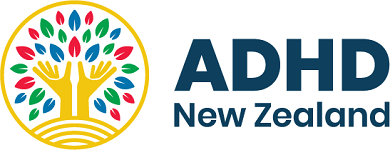If there are some other challenges and/or difficulties to understand then assessing ADHD can be more complex and need more assessment than usual.
Co-occuring mental health conditions research according to US-based CHADD (Children and Adults with ADHD) are reflected in an estimated 14 percent of children with ADHD have co-occurring depression, and 30 percent also have anxiety. Of adults with ADHD, about 47 percent also have depression, and 53 percent have anxiety.
As you can imagine, it's important to understand everything that may be playing a part in keeping someone from meeting their potential or understanding their uniqueness.
Co-occuring mental health conditions research according to US-based CHADD (Children and Adults with ADHD) are reflected in an estimated 14 percent of children with ADHD have co-occurring depression, and 30 percent also have anxiety. Of adults with ADHD, about 47 percent also have depression, and 53 percent have anxiety.
As you can imagine, it's important to understand everything that may be playing a part in keeping someone from meeting their potential or understanding their uniqueness.
Estimates of co-morbidity with ADHD in New Zealand
New Zealand Guidelines for the Assessment and Treatment of ADHD
Published in July 2001 by the Ministry of Health, New Zealand
Published in July 2001 by the Ministry of Health, New Zealand
|
Mental health condition
|
Approx. rate in children with ADHD
|
|
Oppositional Defiant Disorder (ODD)
|
Range 54-67%
|
|
Conduct Disorder (CD)
|
20-56% in children; 44-50% in adolescents
|
|
Specific developmental disorder (i.e. speech, language and learning)
|
8-39% have a reading disability
12-30% have a maths disability 10-54% have challenges with speech 12-27% have challenges with spelling |
|
Anxiety disorder
|
25%
|
|
Somatic complaints
|
24% boys
35% girls |
|
Major depressive disorder
|
25%
|
|
Substance abuse disorder
|
In adolescence risk is 2-5 times higher than 'normal' controls if both Conduct Disorder and ADHD are present
|
|
Bipolar disorder
|
6%
|
|
Tic disorders/Tourette's disorder
|
Possible increased risk if ADHD is present
|
Other mental health conditions that can co-exist with ADHD
Dr Russell Barkley fact sheet: Attention Deficit Hyperactivity Disorder (ADHD)
Click on each heading or "+" to find out more.
Click on each heading or "+" to find out more.
Learning Disabilities
With ADHD you have a 30-50% increased chance of also experiencing a Specific Learning Disability (SLD). This affects your academic progress significantly.
A SLD is usually in one, or some area (all areas would be an Intellectual Disability) of academic/learning ability. SLD's, like ADHD, are neurologically-based disabilities that describe areas of your brain that aren't functioning in learning within the range expected for age or stage of life.
It can include reading, spelling/phonic processing, writing and math. Dyslexia is an example of an SLD specific to reading and spelling (and some consider phonics as well).
A Specific Learning Disability (SLD) is assessed and diagnosed by a specialist, such as an Educational Psychologist, who uses evidence from your cognitive (intelligence) testing and academic testing.
The results are interpreted at an expert level to determine if a significant difference is evident between your intellect and how you're performing academically.
A SLD is usually in one, or some area (all areas would be an Intellectual Disability) of academic/learning ability. SLD's, like ADHD, are neurologically-based disabilities that describe areas of your brain that aren't functioning in learning within the range expected for age or stage of life.
It can include reading, spelling/phonic processing, writing and math. Dyslexia is an example of an SLD specific to reading and spelling (and some consider phonics as well).
A Specific Learning Disability (SLD) is assessed and diagnosed by a specialist, such as an Educational Psychologist, who uses evidence from your cognitive (intelligence) testing and academic testing.
The results are interpreted at an expert level to determine if a significant difference is evident between your intellect and how you're performing academically.
Oppositional Defiant Disorder (ODD)
ODD occurs in approximately 5% of all children but studies estimate around 30% of those with ADHD also experience it.
ODD's characterised in children and adolescents by:
While anybody can be aggressive and irritating at times, to be diagnosed as ODD, a person must display a pattern of negativistic, hostile, and defiant behaviour must be everywhere and towards most authority figures. and last for at least six months. While it often starts at home, and then extends to school (or vice versa), both are required for the diagnosis to be made.
It's important to have this assessed and to understand if this is part of what your child, or you, experience. This is because there are different and specific (often parent-based) treatment methods needed. These are principally behavioural and completed with a Behavioural Specialist or Psychologist.
If you'd like to read up on this The Explosive Child by Ross W. Greene, Ph.D. is a good place to start.
ODD's characterised in children and adolescents by:
- aggressiveness
- a tendency to purposefully bother and irritate others, and
- defiance toward all those in authority over them, usually including both parents/guardians and teachers/bosses.
While anybody can be aggressive and irritating at times, to be diagnosed as ODD, a person must display a pattern of negativistic, hostile, and defiant behaviour must be everywhere and towards most authority figures. and last for at least six months. While it often starts at home, and then extends to school (or vice versa), both are required for the diagnosis to be made.
It's important to have this assessed and to understand if this is part of what your child, or you, experience. This is because there are different and specific (often parent-based) treatment methods needed. These are principally behavioural and completed with a Behavioural Specialist or Psychologist.
If you'd like to read up on this The Explosive Child by Ross W. Greene, Ph.D. is a good place to start.
Conduct Disorder (CD)
Conduct Disorder (CD) is usually an escalation of untreated ODD.
Young adolescents (who are post-ODD) have developed a general and pervasive disregard for authority, violate basic laws and rules of society by frequently lying, stealing, fighting with or bullying others. They may also be aggressive towards animals, destroy property, break into people’s homes, commit thefts, carry or use weapons or engage in vandalism.
These people are at greater risk for substance use experimentation, and later dependence and abuse.
For those with ADHD, research on prevalence from America suggests about 20% – 40% of children with ADHD may eventually develop CD, but this is likely to be an overestimate to what is seen in New Zealand (which is much less).
Like with ODD, the development of CD is closely linked with untreated ADHD. It can be seen with high levels of impulsivity and also with high rates of mental health difficulties and socio-economic challenges. It's common for parents who have CD and ADHD to have drug/alcohol addictions as well.
The best treatment often includes long term psychotherapy for the individual and parent training. It may also require support through the NZ Police Youth Aid and/or Oranga Tamariki (the Ministry for Vulnerable Children).
PLEASE NOTE - If you or your family are affected by a behaviourally out of control and aggressive child, please remember safety is paramount.
Young adolescents (who are post-ODD) have developed a general and pervasive disregard for authority, violate basic laws and rules of society by frequently lying, stealing, fighting with or bullying others. They may also be aggressive towards animals, destroy property, break into people’s homes, commit thefts, carry or use weapons or engage in vandalism.
These people are at greater risk for substance use experimentation, and later dependence and abuse.
For those with ADHD, research on prevalence from America suggests about 20% – 40% of children with ADHD may eventually develop CD, but this is likely to be an overestimate to what is seen in New Zealand (which is much less).
Like with ODD, the development of CD is closely linked with untreated ADHD. It can be seen with high levels of impulsivity and also with high rates of mental health difficulties and socio-economic challenges. It's common for parents who have CD and ADHD to have drug/alcohol addictions as well.
The best treatment often includes long term psychotherapy for the individual and parent training. It may also require support through the NZ Police Youth Aid and/or Oranga Tamariki (the Ministry for Vulnerable Children).
PLEASE NOTE - If you or your family are affected by a behaviourally out of control and aggressive child, please remember safety is paramount.
- If in doubt of anyone's safety please dial 111 to get immediate assistance.
- If your danger is not immediate but you're afraid it may escalate to this level then contact your local Police Community Constable and they will assist you with support and a safety plan.
Anxiety and Depression
If their ADHD has not been treated in the past and is newly diagnosed, ADHD is often accompanied by anxiety or depression, especially in older adolescents and adults.
Anxiety usually occurs over time and often is a consequence of approaching new situations without preparing or pre-thinking it through (cognitive rehearsal).
Depression often develops hand-in-hand with anxiety, often as a result of anxious avoidance that leads to decreased opportunities to succeed and isolation.
What we do know is that when anxiety or depression is recognised and treated either through psychological therapy, psychiatric medications or both, you'll be better able to handle the challenges that accompany ADHD.
The converse is also true, in that effective treatment of ADHD can also have a positive impact on anxiety as you'll be better able to master tasks, feel competent and effective.
Anxiety usually occurs over time and often is a consequence of approaching new situations without preparing or pre-thinking it through (cognitive rehearsal).
- This can lead to multiple situations that are unexpected and fearful, further developing into anticipatory anxiety and fear the worst will happen (as a protective but irrational defence).
- In adolescence, this is usually around friendships and identity.
- In adulthood, anxiety is often in relationships and feelings of competence.
Depression often develops hand-in-hand with anxiety, often as a result of anxious avoidance that leads to decreased opportunities to succeed and isolation.
- Maintaining relationships is also often a difficulty experienced with ADHD (especially if untreated).
- This can lead to potentially fewer sources of emotional support and loneliness, exacerbating low feelings.
What we do know is that when anxiety or depression is recognised and treated either through psychological therapy, psychiatric medications or both, you'll be better able to handle the challenges that accompany ADHD.
The converse is also true, in that effective treatment of ADHD can also have a positive impact on anxiety as you'll be better able to master tasks, feel competent and effective.
Bipolar Disorder
Bipolar Disorder is a condition with a neurological foundation that is marked by extreme shifts in mood. Symptoms can include:
There are some symptoms that can be present both in ADHD and Bipolar Disorder, such as a high level of energy, emotional ups and downs and reduced need for sleep.
Differentiating between ADHD and Bipolar Disorder can be difficult and is important in another reason why an assessment is completed by a specialist.
Research shows that about 70% of adults with Bipolar Disorder also have ADHD, and that 20% of people with ADHD will develop Bipolar Disorder.
Treatment for Bipolar Disorder is usually a combination of psychiatric medication and psychotherapy with a Clinical Psychologist or Psychotherapist specialising in Bipolar Disorder.
- an extremely elevated mood called mania
- episodes of depression (Bipolar Disorder has also been known as Manic Depression).
There are some symptoms that can be present both in ADHD and Bipolar Disorder, such as a high level of energy, emotional ups and downs and reduced need for sleep.
Differentiating between ADHD and Bipolar Disorder can be difficult and is important in another reason why an assessment is completed by a specialist.
Research shows that about 70% of adults with Bipolar Disorder also have ADHD, and that 20% of people with ADHD will develop Bipolar Disorder.
Treatment for Bipolar Disorder is usually a combination of psychiatric medication and psychotherapy with a Clinical Psychologist or Psychotherapist specialising in Bipolar Disorder.
Tics and tourette Syndrome
Tourette Syndrome (TS) is a neurodevelopmental disorder (much like ADHD) characterised by multiple chronic motor and vocal tics, which begin in childhood.
Several studies describe the association between TS and ADHD. Symptoms include:
Tics can be singular and not part of a full Tourette Syndrome.
Approximately 50% of children diagnosed with ADHD also have tics but a very small proportion of people with ADHD also have TS.
An assessment is completed with a Clinical Psychologist or Psychiatrist.
The treatment for Tics and Tourette Syndrome is often a combination (or separately) of tic-based therapy (CBIT is an example) completed with a Psychologist and psychiatric medication.
Several studies describe the association between TS and ADHD. Symptoms include:
- various nervous tics
- repetitive mannerisms, such as eye blinks, facial twitches, or grimacing, or
- frequent throat clearing, snorting, sniffing or barking out words.
Tics can be singular and not part of a full Tourette Syndrome.
Approximately 50% of children diagnosed with ADHD also have tics but a very small proportion of people with ADHD also have TS.
An assessment is completed with a Clinical Psychologist or Psychiatrist.
The treatment for Tics and Tourette Syndrome is often a combination (or separately) of tic-based therapy (CBIT is an example) completed with a Psychologist and psychiatric medication.
Autism Spectrum Disorder & social pragmatic disorder
Autistic Spectrum Disorder (ASD) is the term now used to incorporate the spectrum of social, emotional, sensory, repetitive and unusual behaviour difficulties experienced by those "on the spectrum". This term refers to Autism, Asperger’s syndrome, Pervasive Developmental Disorders, and 'high-functioning Autism'.
ASD is divided into three levels of severity; with Level 1 being the least impacted (formerly known as Aspergers) and Level 3 being the most impacted and includes an Intellectual Disability (ID).
ADHD and especially ASD (Level 1) are closely related and frequently share many similar characteristics. In both, there are significant difficulties in maintaining attention, emotional impulsivity, poor use of self-talk, limited self-awareness and poor reading of social cues (although for different reasons).
Both groups generalise rules poorly and do better with predictability and routine.
Not to be confused with ASD is Social Pragmatic Disorder (SPD) which refers to social and communication difficulties that significantly impact a person's ability to perform socially.
ASD is divided into three levels of severity; with Level 1 being the least impacted (formerly known as Aspergers) and Level 3 being the most impacted and includes an Intellectual Disability (ID).
ADHD and especially ASD (Level 1) are closely related and frequently share many similar characteristics. In both, there are significant difficulties in maintaining attention, emotional impulsivity, poor use of self-talk, limited self-awareness and poor reading of social cues (although for different reasons).
Both groups generalise rules poorly and do better with predictability and routine.
Not to be confused with ASD is Social Pragmatic Disorder (SPD) which refers to social and communication difficulties that significantly impact a person's ability to perform socially.




